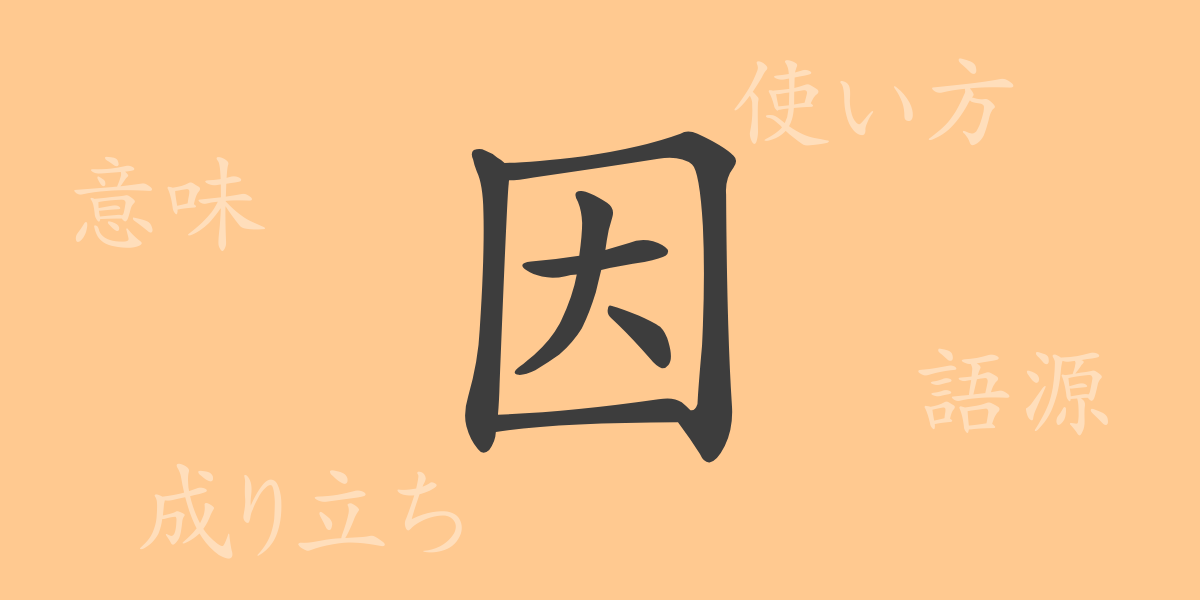“
The depth of Japanese script culture is significantly defined by Kanji characters, each embodying rich meanings and histories that tell the story of the Japanese language. This article highlights the Kanji ‘因’ (In), frequently used in everyday life, exploring its allure from its origins to its contemporary uses, providing a comprehensive introduction.
Origins of 因 (In)
The Kanji ‘因’ originates from ancient China, traceable back to oracle bone script. It was pictographically represented by a figure with a wide-open mouth, symbolizing that “”actions are initiated by spoken words,”” evolving to mean ’cause’ or ‘reason’ over time. Each Kanji’s formation has a story, enhancing understanding through its historical context.
Meaning and Usage of 因
‘因’ commonly refers to a ’cause’ or ‘reason,’ denoting the trigger or rationale behind an occurrence. It is also used as a conjunction meaning ‘due to’ or ‘because of.’ In philosophical contexts, it appears in terms such as ‘因果’ (cause and effect), indicating the relationship between cause and outcome.
Readings, Stroke Count, and Radical of 因
Understanding the readings and structure of ‘因’ can aid in memorizing and recognizing it more easily.
- Readings: On’yomi (Sino-Japanese reading) ‘In’, Kun’yomi (native Japanese reading) ‘Yoru’.
- Stroke Count: 6 strokes.
- Radical: 囗 (Kunigamae).
Idioms, Phrases, and Proverbs Involving 因
Idioms and proverbs including ‘因’ are prevalent in Japanese, reflecting various aspects of the language and culture. For instance, ‘因果応報’ (Ingaouhou) is a Buddhist term meaning ‘retribution reflecting one’s actions,’ and ‘因襲’ (Insyuu) refers to ‘following old customs or traditions,’ often discussed in societal or cultural contexts. Knowing these expressions broadens the expressive capacity of the Japanese language.
Conclusion on 因
The Kanji ‘因’ is profound, spanning a wide range of knowledge from its origins to modern applications. Effectively using phrases and idioms containing ‘因’ can enhance accurate communication and enrich expression in Japanese. This article hopes to deepen the understanding of ‘因,’ aiding in more effective and richer use of the Japanese language.
“

























